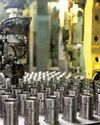Rise in illicit cigarette trade and losses to tobacco farmers have led to a high decibel demand for a complete ban on FDI in the tobacco sector

WARNING: Foreign direct investment in the tobacco industry is injurious to farmers’ economic health. Just as the warning on cigarette packs is intended to make people think twice before lighting up, this one by the tobacco farmers, who are calling for a ban on FDI in the sector, has put the central government in a quandary. At the heart of the matter is the declining income of tobacco farmers who blame their plight on the higher taxation on cigarettes and a concomitant increase in illegal trade as well as shrinking export of tobacco on one hand, and tobacco MNCs setting shop in India on the other.
The central government seems to be caught between a wall and a hard place, as its growth strategies since it assumed power in 2014 have hinged on attracting more and more foreign direct investment (FDI) and driving domestic consumption by raising farmer’s income. To ban FDI or not is the key question.
To begin with, the tobacco industry is one of the most regulated and taxed sectors in the country. Currently, although FDI is prohibited in manufacturing of cigars, cigarettes and tobacco substitutes, it is permitted in technology collaboration in any form, including licensing for franchise, trademark, and management contracts in the sector.
Facing stricter legal norms and health compliance pressure in developed countries in North America and Europe, some of the biggest multinational tobacco firms like Philip Morris, British American Tobacco and Japan Tobacco Inc., among others, have been looking to enter and expand in developing nations.
This story is from the {{IssueName}} edition of {{MagazineName}}.
Start your 7-day Magzter GOLD free trial to access thousands of curated premium stories, and 9,000+ magazines and newspapers.
Already a subscriber ? Sign In
This story is from the {{IssueName}} edition of {{MagazineName}}.
Start your 7-day Magzter GOLD free trial to access thousands of curated premium stories, and 9,000+ magazines and newspapers.
Already a subscriber? Sign In

MEMORIES & IMPRESSIONS
Ratan Tata was an exceptional human being. He was a visionary leader, esteemed industrialist, and a humanitarian, who left an indelible mark on India and the world.

The Robotaxi Market
The robotaxi market is shaping up to be a high-stakes battleground as tech giants and automakers race to transform urban mobility.

And the Nobel Prize Goes to AI
The recent Nobel Prize T awards to AI pioneers affiliated with Google have sparked a broader conversation about Big Tech's influence on research and the limitations of traditional prize categories.

Ola Electrified
Once considered a trailblazer in India’s electric vehicle (EV) ecosystem, Bhavish Aggarwal’s Ola Electric now faces a major accountability crisis.

Sharp Slide in Industrial Output on Eve of Deepavali
India’s index of industrial production (IIP) saw a sharp reversal in August, contracting by 0.1 per cent, in stark contrast to the 4.7 per cent growth in July, mostly because of significant contractions in mining and electricity generation.

Heralding the Solar Era with Sustainable Electrification
RAJEEV KASHYAP on the economics of solar power, the hurdles in scaling it, and much more

A WELL-GREASED MACHINE
The OmniBook X14 laptop runs on first-generation Snapdragon X Elite, which bets big on Al-enabled productivity and battery life, but falls short when it comes to overall experience, says Deep Majumdar

DO NOT LETA HEALTH CRISIS RUIN YOUR FINANCIAL HEALTH
For a family of four living in a metro, it is recommended to opt for a family floater health insurance plan with a sum insured of at least Rs 15-20 lakh

Disruption Ahead: Beyond Organisation Charts and Structures
ALBERT EINSTEIN FAMOUSLY said, “We cannot solve our problems with the same thinking we used when we created them.

Dr. Rahul Shivajirao Kadam: A Visionary Leader Blending Sustainability, Innovation, And Social Empowerment
We are on the stage of global warming, and these technologies not only help prevent further damage but also leave behind a better environment for future generations.